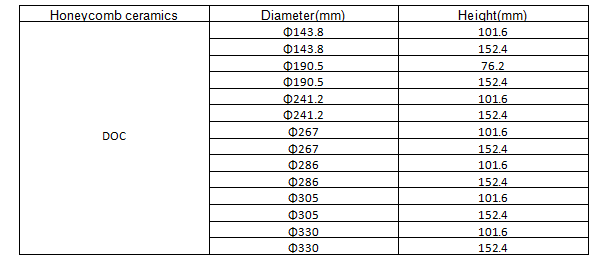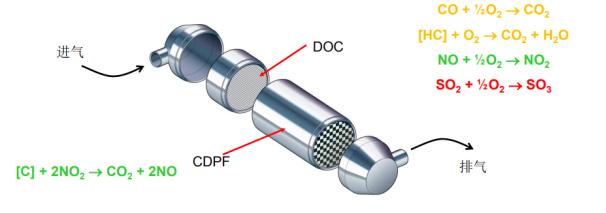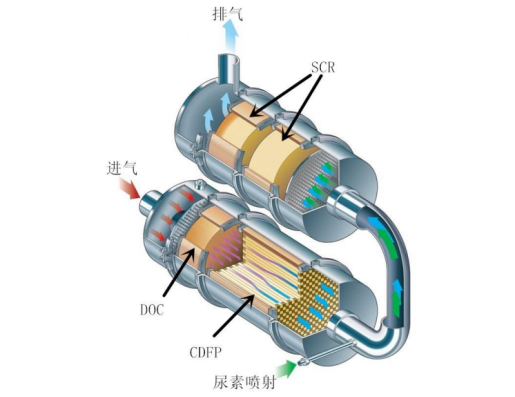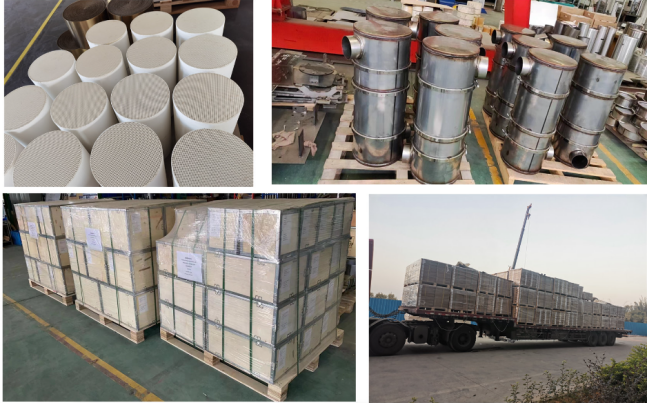- Menu
-
- English


DOC is one of the most important catalysts for diesel engine reprocessing. Its main function is to oxidize the unburned hydrocarbons (HC) in the engine and the carbon monoxide (CO) produced during combustion into harmless water and carbon dioxide. At the same time, it can also convert NO into NO2 for passive regeneration of downstream catalyst particle trap (CDPF) and improve NOx conversion efficiency of SCR. Depending on the emission requirements, it is sometimes necessary to integrate multiple functions on DOC, which also brings great challenges to the design of DOC. We can provide the following conventional DOC products, but also according to the customer's engine emissions input to provide customized DOC products.
| Availability: | |
|---|---|
| Quantity: | |
DOC
HOONPAI
8421320030
What is DOC?
DOC is one of the most important catalysts for diesel engine reprocessing. Its main function is to oxidize the unburned hydrocarbons (HC) in the engine and the carbon monoxide (CO) produced during combustion into harmless water and carbon dioxide. At the same time, it can also convert NO into NO2 for passive regeneration of downstream catalyst particle trap (CDPF) and improve NOx conversion efficiency of SCR. Depending on the emission requirements, it is sometimes necessary to integrate multiple functions on DOC, which also brings great challenges to the design of DOC. We can provide the following conventional DOC products, but also according to the customer's engine emissions input to provide customized DOC products.
What size can we make?

How does the DOC work with CDPF?

Doc: Oxidation of No to No2 and removal of CO and HC.
CDPF: the captured carbon particles react with NO2 at low temperature to produce CO2 emissions.
How does the DOC work with CDPF and SCR?

How is our packing?

What is DOC?
DOC is one of the most important catalysts for diesel engine reprocessing. Its main function is to oxidize the unburned hydrocarbons (HC) in the engine and the carbon monoxide (CO) produced during combustion into harmless water and carbon dioxide. At the same time, it can also convert NO into NO2 for passive regeneration of downstream catalyst particle trap (CDPF) and improve NOx conversion efficiency of SCR. Depending on the emission requirements, it is sometimes necessary to integrate multiple functions on DOC, which also brings great challenges to the design of DOC. We can provide the following conventional DOC products, but also according to the customer's engine emissions input to provide customized DOC products.
What size can we make?

How does the DOC work with CDPF?

Doc: Oxidation of No to No2 and removal of CO and HC.
CDPF: the captured carbon particles react with NO2 at low temperature to produce CO2 emissions.
How does the DOC work with CDPF and SCR?

How is our packing?

content is empty!
